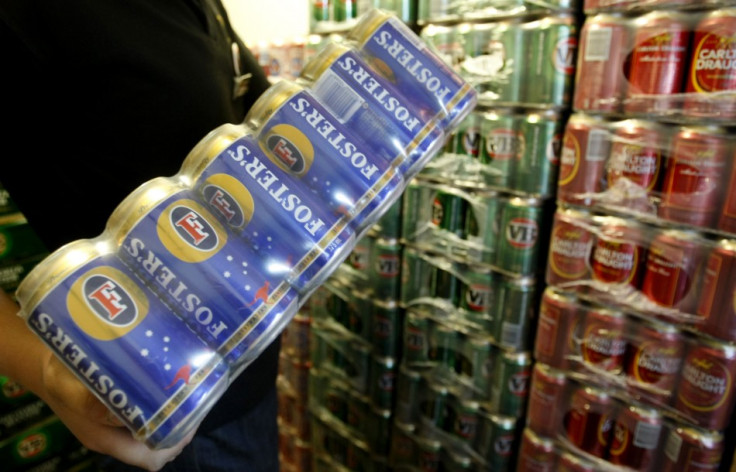SABMiller and AB InBev deal: 'Megabrew' enters top five biggest mergers in corporate history

At a total value of £68bn ($103.4bn, €91bn), the deal between brewery giants AB InBev and SABMiller is set to catapult them into fourth place in the leaderboard for the biggest mergers to have ever happened.
AB InBev – which owns the Stella Artois, Budweiser and Corona brands – and SABMiller – who are behind Bulmers, Coors and Foster's– must now complete all the legal and regulatory work to finalise the deal now that terms have been agreed.
Here are the five biggest M&A deals to have ever taken place, sourced from the Institute of Mergers, Acquisitions and Alliances.
1. Vodafone AirTouch and Mannesmann, 1999: $202.8bn (£133bn)
The deal – initially a hostile takeover bid by Vodafone that Mannesmann bosses eventually accepted – created the world's largest mobile phone company as the industry took off.
2. AOL and Time Warner, 2000: $164.7bn (£108bn)
This enormous deal was later branded the biggest mistake in corporate history after a number of write-downs, as AOL suffered from the collapse in dial-up internet customers amid the advent of broadband. They split again in 2009, worth just a fraction of what they were a decade before.
3. Shareholders and Philip Morris International, 2007: $107.6bn (£71bn)
This was the result of Philip Morris International being spun out of the company that owned it, Altria Group, and listed separately – with Altria investors handed shares in the new entity.
4. AB InBev and SABMiller, 2015: $103.4bn (£68bn)
The combined brewer will make a third of all beers worldwide, if all the legal work is wrapped up.
5. RFS Holdings BV and ABN-AMRO Holding NV, 2007: $98.2bn (£64.5bn)
RFS Holdings was a combined entity owned by RBS, Fortis Bank Nederland and Banco Santander that bought ABN-AMRO, a Dutch bank. But the enormous deal saddled them with debt, and RBS and Fortis had to be bailed out by their national governments. Their ABN-AMRO entities were wound up, sold off or nationalised by the Dutch government.
© Copyright IBTimes 2025. All rights reserved.






















